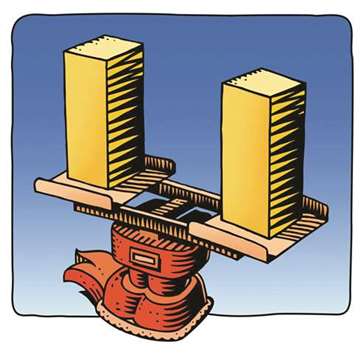Can you remember a time or instance at work when you were not treated fairly – perhaps you felt underpaid, a less competent colleague was given a position higher than yours, or you were made into a scapegoat for somebody else’s mistakes because of politics?
Actually, I’m asking the wrong question! The right question is: “Can you FORGET a time or instance at work where you were not treated fairly?” Well, I can’t, and I suspect I’m not alone in this. For example, when it comes to position or pay, my two decades of work experience tells me: underpay an individual, and he will never forgive you; overpay him, and the rest of the employees will never forgive you.
University of Illinois research has shown that even 19-21-month-olds have a general sense of fairness, indicating that fair treatment is one of our inherent instinctive needs, affecting our emotional well-being both individually and collectively! It therefore comes as no surprise that, as we grow older and become part of the corporate world, we require our employers to provide us with a just environment. So how do we define “justice”. Ali ibn Abi Talib – the fourth caliph - eloquently defined justice as “putting everything in its right place”. So how do we do that in a corporate context?
First of all, individuals or teams that are charged with dispensing justice, including setting up company policies (compensation and benefits, rules and regulations, and disciplinary measures) and determining treatment of employees in specific instances, must meet certain criteria, as follows:
*They must have be positive, sincere and caring towards employees, as opposed to considering them to be exploitable “resources”
*They must have in-depth understanding of right and wrong, the law of the land, and of global corporate norms
*They must be honest, fearless, and non-political, while demonstrating humility and wisdom in their dealings
*They must be at arm’s length with the rest of the organisation’s functions, with no vested interests
To ensure that employees are positioned appropriately and treated fairly, the following are critical:
*Objectivity and transparency through SMART KPIs. In other words, a clear understanding of expectations between employer and employee
*Frequent performance assessments. For example, Adobe conducts “monthly check-ins” to ensure that assessments are up-to-date and interactive, resulting in timely feedback and support, better and quicker improvement among employees, and a higher sense of satisfaction for everyone
*Competent, self-confident and fair-minded managers. A sure-shot way to ensure employees are NOT treated fairly is to put them under a dishonest or incompetent boss who’s more interested in self-projection rather than team building
In the case of penalties, when dispensing justice, employers must act cautiously, not rush to decisions, but investigate thoroughly before penalising individuals. In case of doubt, the employer must err on the side of the employee. In addition, all rules must be applied equitably to all employees, regardless of position, rank or key-man status. This may be difficult for the short-term, but will ensure a much more stable environment, and higher employee loyalty in the longer term.
Finally, the management hold themselves accountable to all employees with regards to their decisions. If a decision cannot be easily justified, chances are that it’s the wrong one! And the last thing that any of us should want is to end up on the wrong side of justice at work!
*S Zuhair Naqvi is the Managing Director of DicoTech Qatar WLL and a Partner at The Happiness Hub Qatar
Twitter: #zuhairnaqvi
LinkedIn: zuhair-naqvi-dicotechqatar

